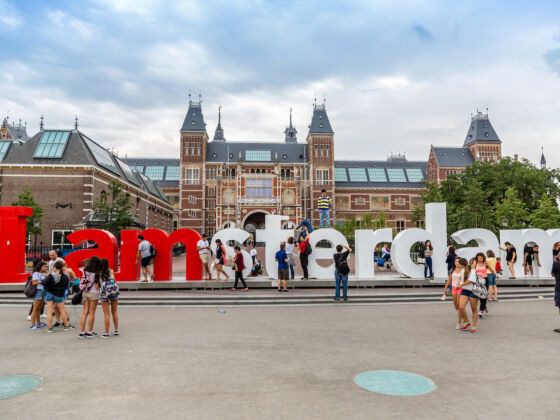On that famous Dutch tolerance
I was told that 30% of Amsterdam is foreigners; it’s one of the strongest expat communities I’ve ever seen in almost a decade on the road. So much so that you can (and people do) live in the city for years, and learn no Dutch and even make no Dutch friends.
The vast majority of other foreigners there were content in their English speaking “bubble” and had created full lives for themselves within it. The Dutch have no problem whatsoever with this. In fact, they almost encourage it!
